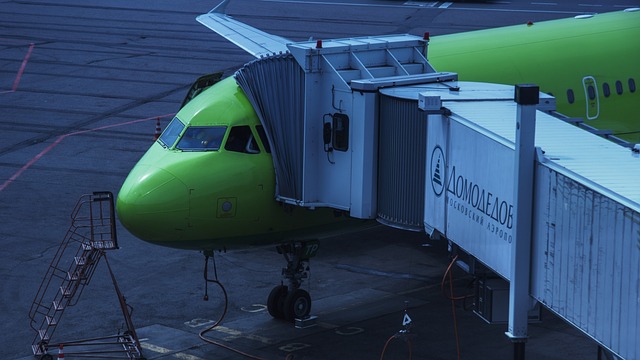The Green Jet Fuel Revolution: How Sustainable Aviation Fuel is Poised to Disrupt the Aerospace Sector
The Green Jet Fuel Revolution: How Sustainable Aviation Fuel is Poised to Disrupt the Aerospace Sector
The quest for sustainability is transcending beyond the ground transportation sector and escalating into the skies. A nascent shift towards green-collar jobs is being propelled by the growth of sustainable aviation fuel (SAF). This shift is not only promising to decrease carbon emissions but also bringing forth a new industrial paradigm that holds immense potential to create job opportunities and economic prosperity.
9 March 2024
BACK TO BLOGS

What's Changing?
The transition towards environmentally-friendly practices is gaining remarkable traction in the aerospace industry. Enforcement of a new levy on departing flights to fund green jet fuel in Singapore and the expected growth of the UK's SAF industry are prime indicators of this change. Singapore's levy and the projection that the SAF industry in the UK could gain £3 billion in value, contribute over 20,000 jobs and save millions of tonnes of CO2 annually by 2038, illustrate a tangible commitment to the environmental agenda. Furthermore, the Inflation Reduction Act's investment of $7.5 billion in EV charging infrastructure is indicative of a broader effort to restructure the energy and transportation industries. Solar power, with an expected doubling of capacity worldwide by 2028, presents another segment ripe for job growth and innovation. This anticipated surge, as discussed in The Conversation, requires a skilled workforce to manage the installation, maintenance, and technological enhancement of solar arrays.
Why is this Important?
The shift towards sustainable aviation fuel and other green technologies is important for several reasons:
-
It aligns with global efforts to combat climate change and reduce greenhouse gas emissions.
-
It signifies a paradigm shift in the labor market with the emergence of green-collar jobs.
-
This transformation is fostering economic opportunities and encouraging investment in new sectors, as observable through the trends in family office investments.
-
The development of SAF presents opportunities for geopolitical collaboration and economic development, as highlighted by Malaysia's role in advancing ASEAN-China relations focusing on trade negotiations that could include environmental goods and services.
These changes are not localized but have global ramifications that will shape industry standards, dictate employment trends, and enforce new regulatory landscapes.
Implications
The implications of the rise of green jet fuel are multi-faceted and extend far beyond the aerospace industry:
-
Economic Growth: With investments directed towards green technologies and sustainable practices, new industries emerge, creating a gamut of job opportunities that range from research and development to manufacturing and services.
-
Workforce Transformation: The emphasis on greener careers is compelling the workforce to upskill and adapt to new technological advancements. Training programs and educational curriculums will need to evolve to prepare individuals for these future roles.
-
Policy and Regulation: Increasing focus on sustainability will necessitate stringent policies and regulations. As companies adapt to meet these new standards, a change in business processes and protocols is inevitable.
-
International Relations: Countries coordinating on environmental initiatives, akin to Malaysia's constructive role in ASEAN-China relations, will influence the geopolitics of trade, with green technology potentially becoming a focal area of diplomacy and negotiation.
These changes are carving out a future that requires both innovative thinking and a willingness to embrace the evolving job market.
Questions
Strategic planners and decision-makers ought to consider key questions in light of these emerging trends:
-
What upskilling initiatives are necessary to prepare the current workforce for green-collar jobs in the aerospace sector, particularly for posts related to SAF?
-
How can countries synergize to standardize regulations and foster international trade for SAF and other green technologies?
-
What investment opportunities are created by these industry disruptions, and how can companies pivot to tap into these new markets?
-
How will the job market shift in ancillary industries that support the aerospace sector as sustainability becomes the cornerstone of operation?
Answering these questions is crucial in identifying opportunities and potential threats, devising strategic responses, and staying ahead in a rapidly changing market landscape.
Summary
The trajectory towards sustainable aviation fuel promises to bring a multitude of changes, disrupting traditional industry practices and giving rise to a new wave of green-collar jobs. This trend spans various domains, including but not restricted to energy production, international trade, and educational requirements for emerging job roles. As countries and businesses grapple with these shifts, the need to proactively adapt and plan for a future that is sustainable both environmentally and economically becomes clear.
Bibliography
Connect with the featured articles for in-depth insights into the shift toward green-collar jobs and the future of the sustainable aviation fuel market:
-
Xeraya Capital: Flightpath to Sustainability - The Rise of Sustainable Aviation Fuel (SAF)
-
Hypercharge EV Charging: Inflation Reduction Act and EV Charging Investment
Image by Khusen Rustamov from Pixabay
